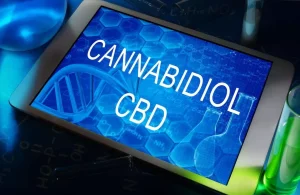
Alcoholism, a chronic disease characterized by a loss of control over drinking and changes in brain regions, necessitates comprehensive treatment approaches. Recent advancements in understanding the molecular targets for alcohol use disorder (AUD) have led to the development of innovative pharmacological treatments. These https://ecosoberhouse.com/article/10-useful-sobriety-sayings-that-can-help/ include medications like aripiprazole, which affects dopamine and serotonin receptors, alpha-1 blockers such as prazosin and doxazosin, and neurokinin-1 antagonists. Other promising pharmacological approaches involve glucocorticoid receptor blockers, vasopressin receptor 1b antagonism, and oxytocin, among others.

What Is Trauma Informed Care
People with alcoholism may also struggle with the compulsion to drink or have a lack of control when it comes to drinking. They may struggle to control a persistent compulsion to drink, despite being aware of the repercussions of their habit. The major signs that someone has alcoholism are tolerance and withdrawal. A man is binge drinking when he consumes 5 or more drinks in less than two hours, and a woman is binge drinking when she consumes 4 or more drinks within two hours.
Dissecting the Definition of Eating Disorders
- Recognizing the key differences between alcohol abuse and alcoholism can help individuals and their loved ones better understand the nature of their drinking behavior and seek appropriate help and treatment.
- Knowing the difference between alcoholic vs. alcoholism enables you to determine whether seeking professional treatment is necessary.
- If you abstain from drinking for a few days and experience anxiety, depression, headaches, insomnia, or nausea, there’s a possibility you’re suffering from alcohol-related withdrawals.
- There is no obligation to enter treatment and you can opt out at any time.
- Our contributions to medical research and education lead to better healthcare outcomes.
- If you are concerned about your alcohol use and would like to explore whether you might have AUD, please visit the Rethinking Drinking website.
If you or someone you know is dealing with these challenging issues, professional help is key. Vanguard Behavioral Health provides comprehensive services that cater to those in need of support on the path to sobriety. Alcoholism, or Alcohol use disorder (AUD), is a more severe form of alcohol abuse characterized by both a mental and physical dependence on alcohol.
For exclusive news and resources

According to the CDC, most people who drink too much are not alcohol-dependent, and 9 out of 10 adults engaging in alcohol abuse do not have alcohol dependence or alcoholism. Someone with an alcohol abuse problem may not experience withdrawal symptoms. Looking at the symptoms mentioned above can give you an idea of how your drinking may fall into harmful patterns and indicate whether or not you have a drinking problem. The official move away from the terms “abuse” and “dependence” in the DSM-5 is also reflective of a shift in how professionals talk about alcohol and substance use. The language used in the past often served to stigmatize people who are affected by alcohol use disorder.

With a professional’s help, you can develop a healthier future that doesn’t involve drinking excessively or at all. In an inpatient setting, you’ll receive addiction treatment while residing in a facility. These people aren’t able to resist drinking if they aren’t continuously monitored in a controlled environment. One size does not fit all and a treatment approach that may work for one person may not work for another. Treatment can be outpatient and/or inpatient and be provided by specialty programs, therapists, and health care providers. If AUD is not treated, it can increase your risk for serious health problems.
- Research shows a high correlation between alcohol misuse and high-risk sexual behavior, violence, crime, self-injury, and fatal injury from things like motor vehicle accidents.
- Severity is based on the number of criteria a person meets based on their symptoms—mild (2–3 criteria), moderate (4–5 criteria), or severe (6 or more criteria).
- Whether you’re struggling with alcohol abuse or alcohol dependence, our alcohol rehab center in San Diego provides a safe, supportive, and caring environment for your road to recovery.
- According to the DSM-IV, an alcohol use disorder is clinically defined as, “a problematic pattern of alcohol use leading to clinically significant impairment or distress”.
- You can then move into ongoing treatment at one of our rehabs by the beach.
A person may need varying levels of care with ‘step-down’ levels to foster long-term sobriety. Those abusing alcohol (or simply drinking too many drinks at one time or over a set period) may not develop alcohol dependence if they cut back on drinking. With time, this means they increase the overall amount they drink in each instance and over a period of time. Essentially, alcoholism is the point at which alcohol abuse becomes alcohol addiction.
Signs of Alcohol Abuse

If a person abuses alcohol, they are drinking more than the recommended amount for safe drinking habits by the Centers for Disease Control and Prevention (CDC). Delirium tremens is a symptom of severe alcohol withdrawal that can be potentially fatal. Contact emergency services immediately if you experience symptoms such as fever, involuntary distinguish between alcohol abuse and alcoholism muscle contractions, seizures, delusions, hallucinations, or rapid mood swings as you withdraw from alcohol. According to a study published in the journal Preventing Chronic Disease, 90% of people who abuse alcohol are not alcohol dependent. Substance abuse can impair motivation and decreases the effectiveness of therapeutic interventions.
” then you might want to know the difference between a drinking problem and alcoholism, also known as alcohol addiction or alcohol use disorder (AUD). Alcoholism is a treatable disease, with many treatment programs and approaches available to support alcoholics who have decided to get help. Getting help before your problem drinking progresses to severe alcohol use disorder can save your life.